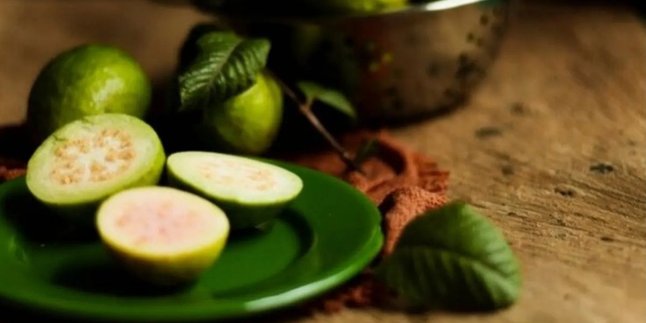Kapanlagi.com - Who can resist the deliciousness of chicken soup? This broth-based dish is not only appetizing but also easy to prepare. However, the fishy aroma from the broth often becomes a troubling issue when enjoying the soup. This problem usually arises from improper processing of chicken bones.
Although chicken bones are rich in essential nutrients like calcium, phosphorus, and collagen, the fishy smell often makes people hesitant to use them in cooking. But don’t worry! With the right technique, you can eliminate this unpleasant aroma and achieve a clear and savory broth.
For those of you who want to enjoy the perfect chicken soup, we have summarized the steps to boil chicken bones without leaving a fishy smell. Let’s check out the tips below and get ready to serve a delicious and tempting chicken soup, as reported by Kapanlagi.com from various sources, Friday (17/1/2025).
1. Initial Preparation Before Boiling Chicken Bones
Before stepping into the kitchen and preparing a delicious broth, thorough preparation is the key to achieving perfect results that are free from any fishy smell.
First of all, make sure the chicken bones you will use are washed clean to remove any remaining blood and dirt. Iin Nuraeni, a culinary expert, recommends a clever trick: soak the chicken bones in rice water for 10 minutes.
After that, rinse until the water is clear; this step is very effective in removing the slime that can cause unpleasant odors. Don’t forget to cut the bones into small pieces so that the essence of the broth can be maximally extracted during cooking.
Lastly, make sure you choose the right stainless steel pot and enough clean water to submerge all the bones, so that the flavor and aroma of the resulting broth are truly appetizing!
2. The First Boiling Process to Eliminate Fishiness
To start your delicious cooking adventure, the first step is to boil the chicken bones in boiling water for 10-15 minutes. This process is not just a ritual, but the key to removing fat and impurities that can leave an unpleasant fishy aroma.
After that, discard the first boiling water and rinse the chicken bones until clean, so that the broth produced later becomes clearer and more appetizing.
As various sources have pointed out, the first boiling serves to sweep away the dirt and fat that floats on the surface.
Once the first boiling water is discarded, prepare enough clean water for the next boiling, ensuring that the chicken bones are fully submerged before proceeding to the main boiling process that will elevate the flavor of your broth to a higher level!
3. Boiling with Cold Water and Low Heat
To obtain a clear and flavorful broth, start by boiling the chicken bones in cold or room temperature water before turning on the heat. Make sure all ingredients are in the pot before starting the boiling process.
Use low heat so that the essence of the bones can slowly release without making the water cloudy. Although this process takes longer, the results will be very satisfying: a rich broth flavor with clear liquid texture.
Stir occasionally to ensure all ingredients are evenly mixed without damaging the bone structure. Add a little salt or basic seasonings like bay leaves to neutralize any fishy aroma that may be present.
Allow the broth to simmer slowly for 1-2 hours until all the essence of the bones is perfectly released.
4. Adding Aromatic Spices for Flavor
Aromatic spices are the secret to eliminating fishy odors and enriching the flavor of your chicken broth!
Try adding onions, scallions, ginger, and pepper at the beginning of the second simmering, so that the essence and aroma of the spices can fully infuse into the broth.
Don't forget, spices like cloves or cinnamon can also provide a tempting signature touch; just use a little so that the broth's flavor remains balanced and appetizing.
5. Straining and Serving Broth
After a patient simmering process, it's time to strain the rich-flavored broth, separating the delicious essence from the bones and spices that have provided the flavor.
Use a fine strainer to make your broth look clear and enticing, and if you want perfect results, don't hesitate to strain it twice. This strained broth is ready to be the star in various dishes, from warm soups, chewy meatballs, to complementary foods for your little one.
Store any leftover broth in an airtight container and place it in the refrigerator, so its deliciousness can last longer to accompany your next culinary creations.
6. Q: Should chicken bones be washed before cooking?
Washing chicken bones is very crucial! This activity is not just a kitchen routine, but also an important step to remove residual blood and dirt that can trigger an unpleasant fishy smell. By cleaning them thoroughly, you ensure that the dishes served remain fresh and appetizing!
7. Q: Why should chicken bones be boiled twice?
The first boiling process plays an important role in removing fat and dirt, while the second boiling presents a clearer and richer broth, ready to delight the palate with its tempting flavor.
8. Q: What spices should be added to the broth?
Aromatic spices such as onions, scallions, ginger, and pepper are not just mere complements, but also heroes in the kitchen! They can chase away disturbing fishy odors and simultaneously transform the dish into something more delicious and appetizing. With a touch of these spices, every dish will transform into a captivating work of art for the palate.
(kpl/rao)
Disclaimer: This translation from Bahasa Indonesia to English has been generated by Artificial Intelligence.












